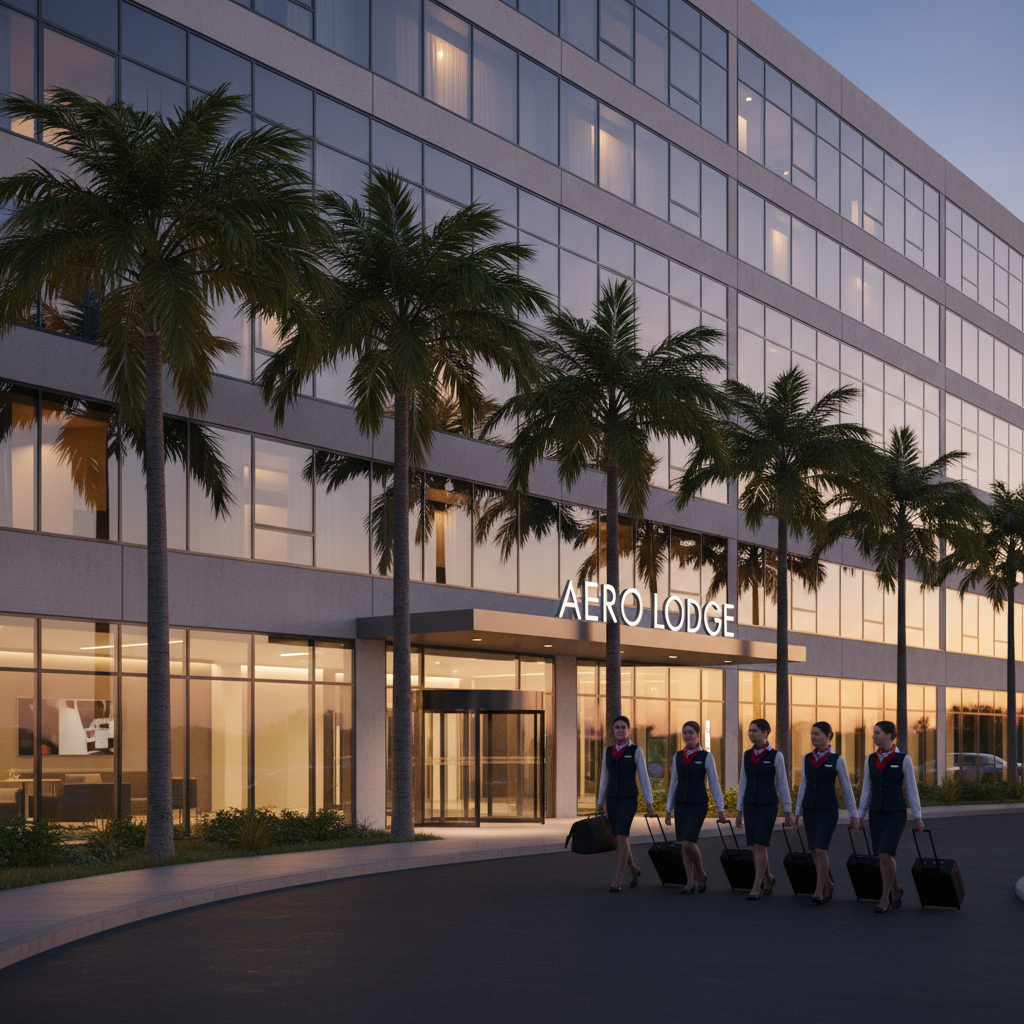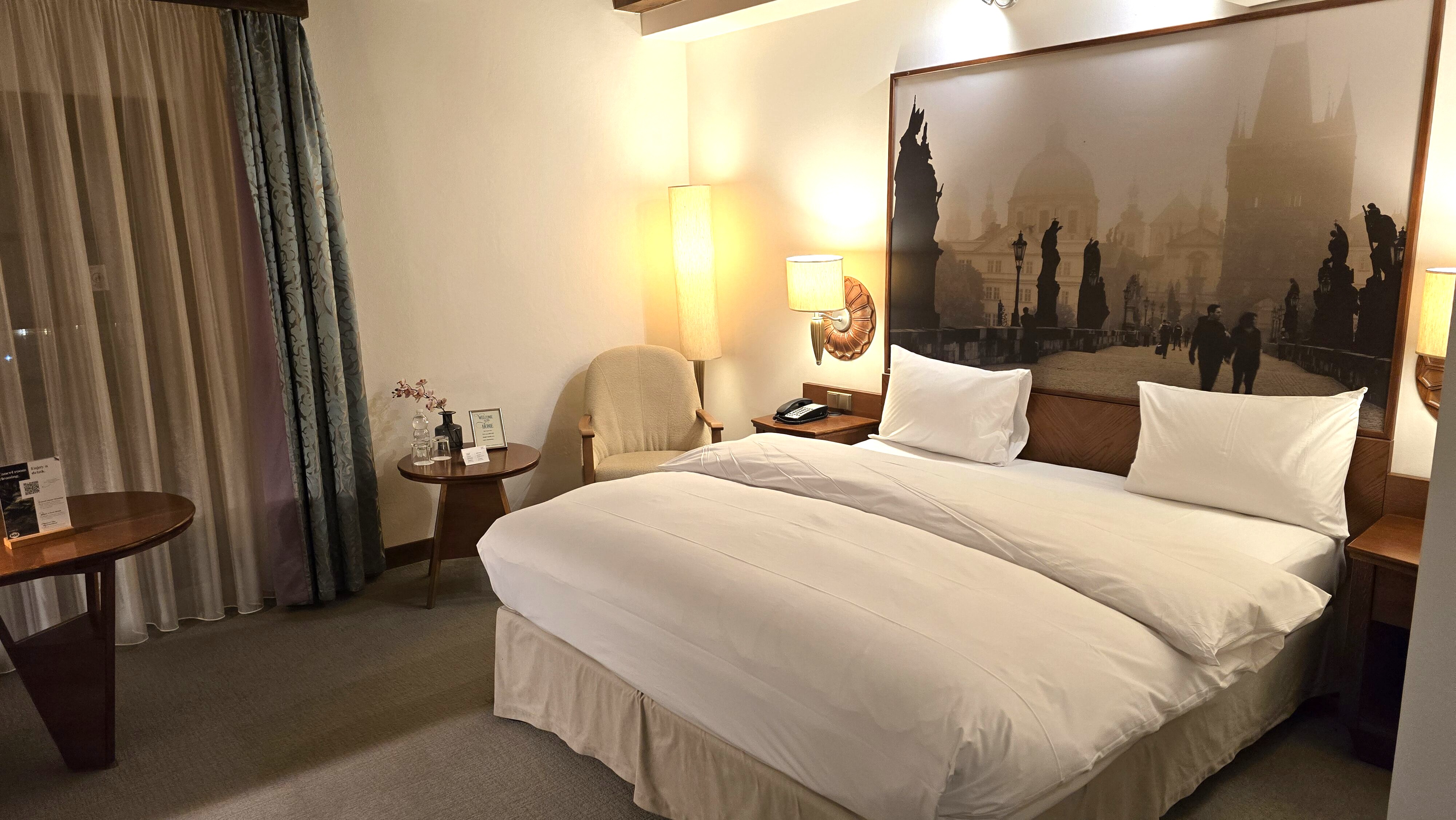
United Airlines Flight Attendant Layover Hotel Standards and Labor Negotiation Challenges
United Airlines is facing significant challenges in securing quality layover accommodations for its flight attendants amid labor contract negotiations with the Association of Flight Attendants-CWA (AFA-CWA). Key disputes center on the removal of the previous guarantee to lodge crews only in business class hotels, replaced by a lower standard requiring hotels to be merely “tenantable,” raising concerns about crews being placed in budget or low-quality hotels. Additionally, a proposed “on call layover policy” requiring attendants to remain available during rest periods has sparked union opposition, citing violations of federally mandated rest. These issues are critical to contract acceptance, as they directly affect crew comfort, safety, and well-being, highlighting the delicate balance between operational demands and worker rights in United’s ongoing negotiations.
Summary
United Airlines Faces Challenges Over Flight Attendant Layover Hotel Standards Amid Labor Contract Negotiations
United Airlines is encountering significant difficulties in securing suitable layover accommodations for its flight attendants due to proposed changes in its labor contract with the Association of Flight Attendants-CWA (AFA-CWA). Central to ongoing negotiations are disputes over the quality of hotels provided during crew layovers and new policies regarding flight attendants' availability during rest periods. These issues are critical to the union's contract acceptance and directly impact crew comfort and well-being.
Change in Hotel Standards Sparks Union Concerns
The tentative labor contract removes the prior guarantee that United Airlines flight attendants be lodged exclusively in business class hotels. Instead, the new language requires only that hotels be maintained with “regular maintenance and cleaning” sufficient to keep them in “tenantable condition.” The Association of Flight Attendants argues this downgrade could force crews into budget or low-quality hotels, undermining comfort during layovers.
Flight attendants, seen by some hotels as challenging guests due to their irregular check-in and check-out times, reserved room blocks, and guaranteed occupancy commitments at discounted rates, face growing reluctance from hotels to host airline crews. Many hotels now prefer transient guests who generate higher revenue and exhibit standard booking patterns, compelling United to place crews in less desirable locations, at times resembling “downtown-style” or budget lodging.
Hotel Relations and Crew Scheduling Challenges
Hotel relations have become increasingly strained as the demand for flexible accommodations for flight crews clashes with hotel business models focused on transient occupancy and maximized revenue per room. These dynamics complicate securing reliable, high-quality hotels suitable for flight attendant rest.
Another contentious point in negotiations involves a newly proposed “on call layover policy,” which would require flight attendants to be “reasonably available” and responsive to Crew Scheduling during layovers. The union views this policy as an infringement on federally mandated rest periods and a violation of work-rest balance, prompting significant backlash among crew members.
Implications for Contract Negotiations and Crew Welfare
The combination of downgraded hotel quality standards and the “always on call” requirement has become a pivotal sticking point in labor discussions between United Airlines and the AFA-CWA union. Flight attendant comfort during layovers is not merely a matter of convenience but is intimately tied to safety, fatigue management, and job satisfaction.
The union’s opposition highlights the importance of preserving hotel quality standards to ensure adequate rest, as well as respecting rest rights by limiting calls from Crew Scheduling during off-duty periods. These factors are influencing contract voting outcomes and are decisive in shaping the future working conditions of United Airlines’ flight attendants.
Conclusion
United Airlines’ current challenges securing appropriate layover hotels for flight attendants, combined with disputes over on-call policies during rest periods, underscore the complex interplay between labor contract terms, hotel industry dynamics, and crew welfare. As negotiations continue, resolving these lodging and scheduling issues remains essential for maintaining service quality and supporting flight attendant well-being during demanding schedules. The evolving labor contract will thus play a pivotal role in balancing operational needs with the rights and comfort of airline crews.

Frequently Asked Questions
Q: Are hotels refusing United Airlines flight attendants?
A: There have been recent reports of some hotels limiting or refusing accommodations to United Airlines flight attendants, often due to labor disputes or concerns related to COVID-19 protocols. However, this is not a widespread or universal policy and tends to vary by location and individual hotel management. United Airlines typically arranges lodging for its crew members, but disruptions can occur due to strikes, protests, or local regulations affecting hospitality services.
Q: United Airlines layover hotel issues
A: United Airlines sometimes provides hotel accommodations for passengers facing long layovers or delays, especially when caused by the airline. However, issues may arise such as limited availability, eligibility restrictions, or booking errors. Passengers encountering problems with layover hotel arrangements should contact United Airlines customer service promptly for assistance or seek clarification on their travel entitlements. It’s also helpful to review the airline’s specific policies on layover hotels to understand eligibility criteria and reservation procedures.
Q: Flight attendant hotel contract disputes
A: Flight attendant hotel contract disputes typically involve disagreements between airlines and hotels over the terms of accommodation agreements used for layovers. Common issues include disputes over room rates, quality standards, billing practices, or fulfillment of contract terms. Airlines may seek alternative lodging if hotels fail to meet agreed standards, while hotels may dispute payment terms or cancellation policies. Resolving such disputes often requires negotiation, contract review, or legal intervention to ensure fair treatment for both parties.
Q: United Airlines crew hotel accommodations
A: United Airlines provides hotel accommodations for its crew members when they are away from their home base during layovers. These accommodations are arranged to ensure comfort and convenience, often including negotiated rates with selected hotels near airports or in city centers. Crew members receive hotel details and instructions through the airline's crew scheduling system or mobile app. The airline aims to maintain rest standards and crew welfare by facilitating appropriate lodging during their duties.
Q: Union stance on United Airlines hotel changes
A: The union representing United Airlines employees has expressed strong concerns over changes to the airline’s hotel policies. They argue that modifications could negatively affect workers' comfort, safety, and overall working conditions during layovers. The union is calling for better communication and negotiation to ensure employee welfare is prioritized in any hotel-related adjustments. Ultimately, they seek to protect and enhance the standards of accommodations provided to flight crews.
Key Entities
United Airlines: United Airlines is a major American airline headquartered in Chicago, known for its extensive domestic and international routes. The airline is relevant in the context of labor relations as it works with unions such as the AFA-CWA.
AFA-CWA: The Association of Flight Attendants-CWA (AFA-CWA) is a union representing flight attendants in the United States. It advocates for workers' rights and negotiates labor contracts with airlines including United Airlines.
AFA: The Association of Flight Attendants (AFA) is a labor union representing flight attendants, now integrated into AFA-CWA. It plays a central role in negotiating working conditions and wages for flight attendants.
London: London is the capital city of the United Kingdom and a major global financial and cultural center. It serves as a key international destination for United Airlines flights connecting Europe and North America.
New York City: New York City is the largest city in the United States and a major hub for commerce, culture, and transportation. It is a primary gateway for United Airlines operations, linking domestic and international routes.
External articles
- United Flight Attendants Outraged By New Contract
- United Flight Attendants in Uproar Over Controversial ...
- United Flight Attendants May Soon Stay At Worse Layover ...
Articles in same category
- Luxury Hotel Openings to Watch in 2025: Exclusive Resorts and Historic Charm
- Kristen Bell Stars in Citi Strata Elite Card Ad Campaign Highlighting Exceptional Travel Rewards
- Integrating Nature, Technology, and Wellness in Modern Office Design
YouTube Video
Title: Delta flight attendant filmed arguing with Southwest gate agent during clash at Atlanta airport#news
URL: https://www.youtube.com/shorts/Sc1UqS9DB6I
Travel